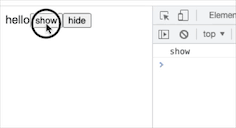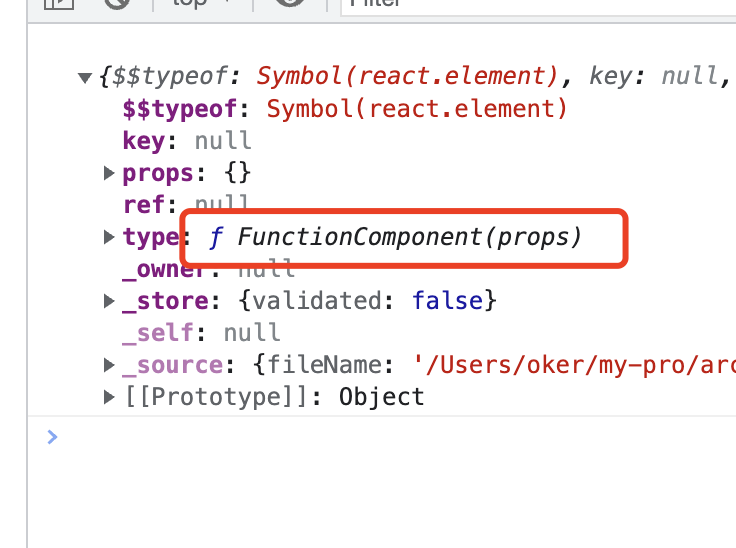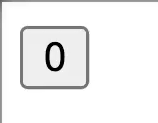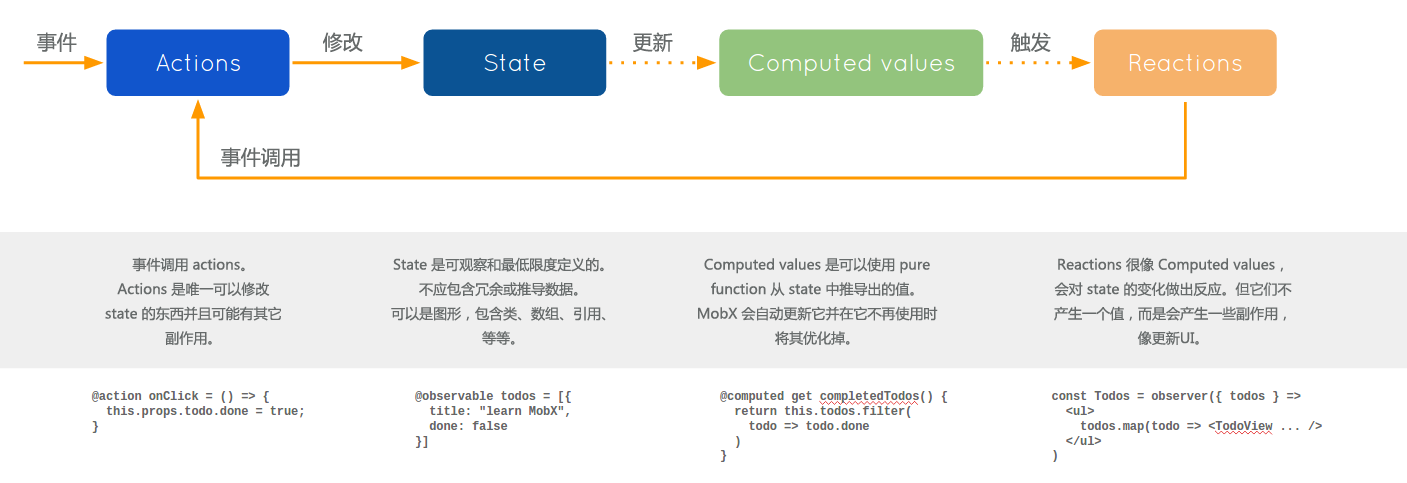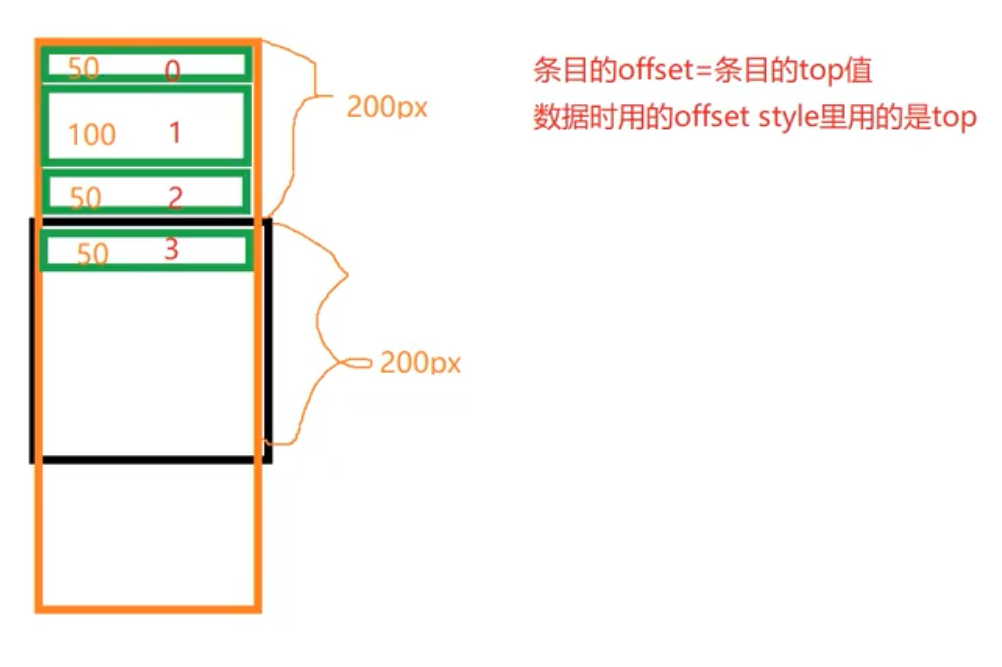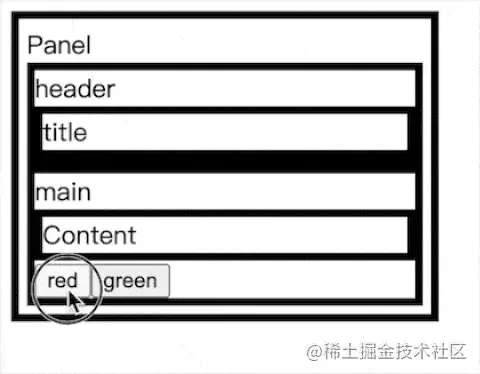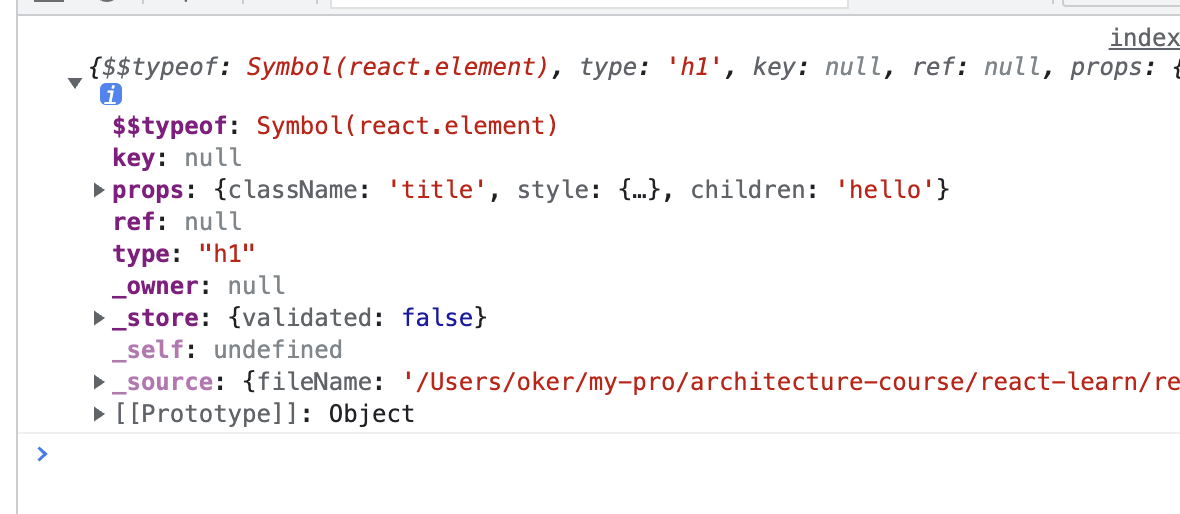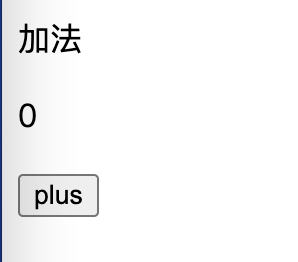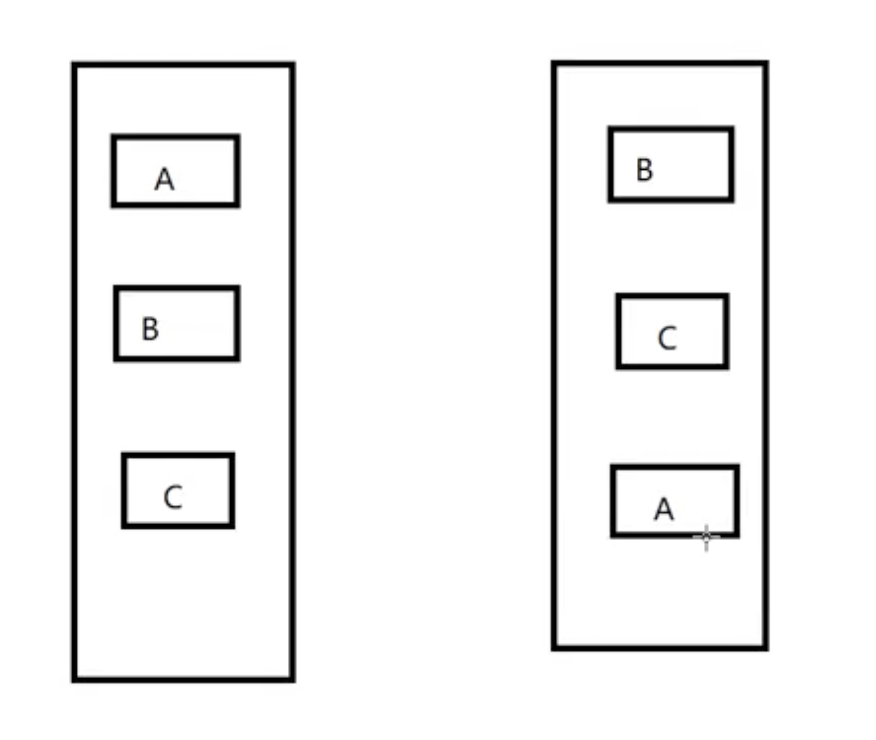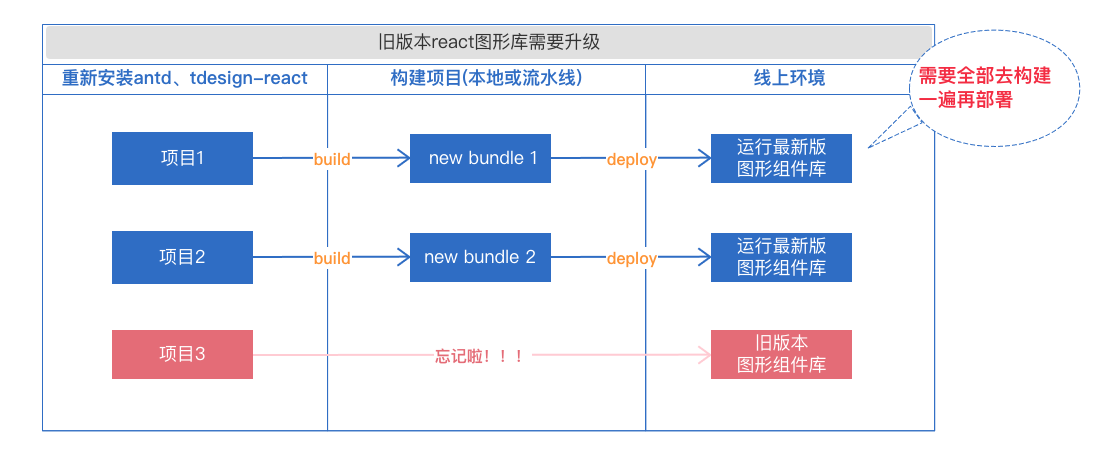很容易知道 ACE_Event_Handler 实现是采用的观察着模式 ,采用登记入 反应器, 是反应器的一个组件。就好像java
的窗体事件监听处理机制。
====================================================================
#include "ACE/Reactor.h"
#include "ACE/Event_Handler.h"
#define SIGWINCH 28
#define SIGINT 2 //按下control + c
class MyEventHandler: public ACE_Event_Handler
{
int handle_signal(int signum,siginfo_t*,ucontext_t*) //处理信号
{
switch(signum)
{
case SIGWINCH: ACE_DEBUG((LM_DEBUG,"You pressed SIGWINCH \n"));
break;
case SIGINT: ACE_DEBUG((LM_DEBUG,"You pressed SIGINT \n"));
break;
}
return 0;
}
};
int main(int argc,char *argv[])
{
MyEventHandler *eh =new MyEventHandler;
ACE_Reactor::instance()->register_handler(SIGWINCH,eh); //注册信号1
ACE_Reactor::instance()->register_handler(SIGINT,eh); //注册信号2
while(1)
ACE_Reactor::instance()->handle_events();
}
==========================================================
ACE_Event_Handler中在子类中重载,所处理事件的类型:
的处理方法
handle_signal() 信号。当任何在反应器上登记的信号发生时,反应器自动回调该
方法。
handle_input() 来自I/O设备的输入。当I/O句柄(比如UNIX中的文件描述符)
handle_exception() 异常事件。当已在反应器上登记的异常事件发生时(例如,如果
handle_timeout() 定时器。当任何已登记的定时器超时的时候,反应器自动回调该
方法。
handle_output() I/O设备输出。当I/O设备的输出队列有可用空间时,反应器自动
回调该方法。
源代码:
/* -*- C++ -*- */ //========================================================================== /** * @file Event_Handler.h * * $Id: Event_Handler.h 92345 2010-10-24 12:39:33Z johnnyw $ * * @author Douglas C. Schmidt <schmidt@cs.wustl.edu> */ //========================================================================== #ifndef ACE_EVENT_HANDLER_H #define ACE_EVENT_HANDLER_H #include /**/ "ace/pre.h" #include /**/ "ace/ACE_export.h" #if !defined (ACE_LACKS_PRAGMA_ONCE) # pragma once #endif /* ACE_LACKS_PRAGMA_ONCE */ #include "ace/os_include/os_signal.h" #include "ace/Atomic_Op.h" #include "ace/Synch_Traits.h" ACE_BEGIN_VERSIONED_NAMESPACE_DECL // Forward declaration. class ACE_Message_Block; class ACE_Reactor; class ACE_Reactor_Timer_Interface; class ACE_Thread_Manager; class ACE_Process; typedef unsigned long ACE_Reactor_Mask; /** * @class ACE_Event_Handler * * @brief * Provides an abstract interface for handling varIoUs types of * I/O,timer,and signal events. * * Subclasses read/write input/output on an I/O descriptor,* handle an exception raised on an I/O descriptor,handle a * timer's expiration,or handle a signal. */ class ACE_Export ACE_Event_Handler { public: enum { LO_PRIORITY = 0,HI_PRIORITY = 10,NULL_MASK = 0,#if defined (ACE_USE_POLL) READ_MASK = POLLIN,WRITE_MASK = POLLOUT,EXCEPT_MASK = POLLPRI,#else /* USE SELECT */ READ_MASK = (1 << 0),WRITE_MASK = (1 << 1),EXCEPT_MASK = (1 << 2),#endif /* ACE_USE_POLL */ ACCEPT_MASK = (1 << 3),CONNECT_MASK = (1 << 4),TIMER_MASK = (1 << 5),QOS_MASK = (1 << 6),GROUP_QOS_MASK = (1 << 7),SIGNAL_MASK = (1 << 8),ALL_EVENTS_MASK = READ_MASK | WRITE_MASK | EXCEPT_MASK | ACCEPT_MASK | CONNECT_MASK | TIMER_MASK | QOS_MASK | GROUP_QOS_MASK | SIGNAL_MASK,RWE_MASK = READ_MASK | WRITE_MASK | EXCEPT_MASK,DONT_CALL = (1 << 9) }; /// Destructor is virtual to enable proper cleanup. virtual ~ACE_Event_Handler (void); /// Get the I/O handle. virtual ACE_HANDLE get_handle (void) const; /// Set the I/O handle. virtual void set_handle (ACE_HANDLE); // = Get/set priority /// Get the priority of the Event_Handler. /// @note Priorities run from MIN_PRIORITY (which is the "lowest priority") /// to MAX_PRIORITY (which is the "highest priority"). virtual int priority (void) const; /// Set the priority of the Event_Handler. virtual void priority (int priority); /// Called when input events occur (e.g.,connection or data). virtual int handle_input (ACE_HANDLE fd = ACE_INVALID_HANDLE); /// Called when output events are possible (e.g.,when flow control /// abates or non-blocking connection completes). virtual int handle_output (ACE_HANDLE fd = ACE_INVALID_HANDLE); /// Called when an exceptional events occur (e.g.,SIGURG). virtual int handle_exception (ACE_HANDLE fd = ACE_INVALID_HANDLE); /** * Called when timer expires. @a current_time represents the current * time that the Event_Handler was selected for timeout * dispatching and @a act is the asynchronous completion token that * was passed in when <schedule_timer> was invoked. */ virtual int handle_timeout (const ACE_Time_Value ¤t_time,const void *act = 0); /// Called when a process exits. virtual int handle_exit (ACE_Process *); /// Called when a handle_*() method returns -1 or when the /// remove_handler() method is called on an ACE_Reactor. The /// @a close_mask indicates which event has triggered the /// handle_close() method callback on a particular @a handle. virtual int handle_close (ACE_HANDLE handle,ACE_Reactor_Mask close_mask); /// Called when object is signaled by OS (either via UNIX signals or /// when a Win32 object becomes signaled). virtual int handle_signal (int signum,siginfo_t * = 0,ucontext_t * = 0); enum { /// The handler is not resumed at all. Could lead to deadlock.. ACE_EVENT_HANDLER_NOT_RESUMED = -1,/// The reactor takes responsibility of resuming the handler and /// is the default ACE_REACTOR_RESUMES_HANDLER = 0,/// The application takes responsibility of resuming the handler ACE_APPLICATION_RESUMES_HANDLER }; /** * Called to figure out whether the handler needs to resumed by the * reactor or the application can take care of it. The default * value of 0 would be returned which would allow the reactor to * take care of resumption of the handler. The application can * return a value more than zero and decide to resume the handler * themselves. * * @note This method has an affect only when used with the * ACE_Dev_Poll_Reactor (and then,only on Linux) or the ACE_TP_Reactor. */ virtual int resume_handler (void); virtual int handle_qos (ACE_HANDLE = ACE_INVALID_HANDLE); virtual int handle_group_qos (ACE_HANDLE = ACE_INVALID_HANDLE); // = Accessors to set/get the varIoUs event demultiplexors. /// Set the event demultiplexors. virtual void reactor (ACE_Reactor *reactor); /// Get the event demultiplexors. virtual ACE_Reactor *reactor (void) const; /// Get only the reactor's timer related interface. virtual ACE_Reactor_Timer_Interface *reactor_timer_interface (void) const; /** * Used to read from non-socket ACE_HANDLEs in our own thread to * work around Win32 limitations that don't allow us to <select> on * non-sockets (such as ACE_STDIN). This is commonly used in * situations where the Reactor is used to demultiplex read events * on ACE_STDIN on UNIX. Note that @a event_handler must be a * subclass of ACE_Event_Handler. If the get_handle() method of * this event handler returns ACE_INVALID_HANDLE we default to * reading from ACE_STDIN. */ static ACE_THR_FUNC_RETURN read_adapter (void *event_handler); /** * Abstracts away from the differences between Win32 and ACE with * respect to reading from ACE_STDIN,which is non-<select>'able on * Win32. */ static int register_stdin_handler (ACE_Event_Handler *eh,ACE_Reactor *reactor,ACE_Thread_Manager *thr_mgr,int flags = THR_DETACHED); /// Performs the inverse of the register_stdin_handler() method. static int remove_stdin_handler (ACE_Reactor *reactor,ACE_Thread_Manager *thr_mgr); /// Reference count type. typedef long Reference_Count; /// Increment reference count on the handler. /** * This method is called when the handler is registered with the * Reactor and when the Reactor makes an upcall on the handler. * Reference count is 1 when the handler is created. * * @return Current reference count. */ virtual Reference_Count add_reference (void); /// Decrement reference count on the handler. /** * This method is called when the handler is removed from the * Reactor and when an upcall made on the handler by the Reactor * completes. Handler is deleted when the reference count reaches * 0. * * @return Current reference count. */ virtual Reference_Count remove_reference (void); /** * @class Policy * * @brief Base class for all handler policies. */ class ACE_Export Policy { public: /// Virtual destructor. virtual ~Policy (void); }; /** * @class Reference_Counting_Policy * * @brief * This policy dictates the reference counting requirements * for the handler. * * This policy allows applications to configure whether it wants the * Reactor to call add_reference() and remove_reference() during * registrations,removals,and upcalls. * * <B>Default:</B> disABLED. */ class ACE_Export Reference_Counting_Policy : public Policy { /// This policy can only be created by the handler. friend class ACE_Event_Handler; public: enum Value { /// Perform reference counting. ENABLED,/// Don't perform reference counting. disABLED }; /// Current Reference_Counting_Policy. Value value (void) const; /// Update Reference_Counting_Policy. void value (Value value); private: /// Private constructor. Reference_Counting_Policy (Value value); /// The value of the policy. Value value_; }; /// Current Reference_Counting_Policy. Reference_Counting_Policy &reference_counting_policy (void); protected: /// Force ACE_Event_Handler to be an abstract base class. ACE_Event_Handler (ACE_Reactor * = 0,int priority = ACE_Event_Handler::LO_PRIORITY); /// Typedef for implementation of reference counting. typedef ACE_Atomic_Op<ACE_SYNCH_MUTEX,Reference_Count> Atomic_Reference_Count; /// Reference count. Atomic_Reference_Count reference_count_; private: /// Priority of this Event_Handler. int priority_; /// Pointer to the varIoUs event demultiplexors. ACE_Reactor *reactor_; /// Reference counting requirements. Reference_Counting_Policy reference_counting_policy_; }; /** * @class ACE_Event_Handler_var * * @brief Auto pointer like class for Event Handlers. * * Used to manage lifecycle of handlers. This class calls * ACE_Event_Handler::remove_reference() in its destructor. */ class ACE_Export ACE_Event_Handler_var { public: /// Default constructor. ACE_Event_Handler_var (void); /// Construct with a handler. ACE_Event_Handler_var (ACE_Event_Handler *p); /// copy constructor. ACE_Event_Handler_var (const ACE_Event_Handler_var &b); /// Destructor. ~ACE_Event_Handler_var (void); /// Assignment to a handler. ACE_Event_Handler_var &operator= (ACE_Event_Handler *p); /// Assignment to a ACE_Event_Handler_var. ACE_Event_Handler_var &operator= (const ACE_Event_Handler_var &b); /// Overloaded "->". ACE_Event_Handler *operator-> () const; /// Access the handler. ACE_Event_Handler *handler (void) const; /// Release the handler. ACE_Event_Handler *release (void); /// Reset the handler. void reset (ACE_Event_Handler *p = 0); private: /// Handler. ACE_Event_Handler *ptr_; }; /** * @class ACE_Notification_Buffer * * @brief Simple wrapper for passing <ACE_Event_Handler *>s and * ACE_Reactor_Masks between threads. */ class ACE_Export ACE_Notification_Buffer { public: ACE_Notification_Buffer (void); ACE_Notification_Buffer (ACE_Event_Handler *eh,ACE_Reactor_Mask mask); /// Default destructor. ~ACE_Notification_Buffer (void); /// Pointer to the Event_Handler that will be dispatched /// by the main event loop. ACE_Event_Handler *eh_; /// Mask that indicates which method to call. ACE_Reactor_Mask mask_; }; ACE_END_VERSIONED_NAMESPACE_DECL #if defined (__ACE_INLINE__) #include "ace/Event_Handler.inl" #endif /* __ACE_INLINE__ */ #include /**/ "ace/post.h" #endif /* ACE_EVENT_HANDLER_H */
virtual ~ACE_Event_Handler (void); /// Get the I/O handle. virtual ACE_HANDLE get_handle (void) const; /// Set the I/O handle. virtual void set_handle (ACE_HANDLE);
版权声明:本文内容由互联网用户自发贡献,该文观点与技术仅代表作者本人。本站仅提供信息存储空间服务,不拥有所有权,不承担相关法律责任。如发现本站有涉嫌侵权/违法违规的内容, 请发送邮件至 dio@foxmail.com 举报,一经查实,本站将立刻删除。


